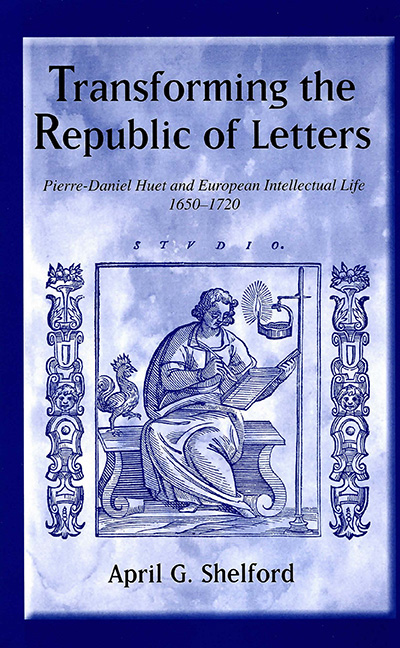Book contents
- Frontmatter
- Dedication
- Contents
- List of Illustrations
- Acknowledgments
- Introduction
- Chapter 1 The Road to Parnassus, 1648–61
- Chapter 2 The Lives of Poems, 1653–63
- Chapter 3 The Empire of Women, 1651–89
- Chapter 4 The Gate of Ivory, 1646–90
- Chapter 5 Defending Parnassus, 1666–92
- Conclusion A Dialogue with the Future
- Notes
- Selected Bibliography
- Index
Introduction
Published online by Cambridge University Press: 11 May 2017
- Frontmatter
- Dedication
- Contents
- List of Illustrations
- Acknowledgments
- Introduction
- Chapter 1 The Road to Parnassus, 1648–61
- Chapter 2 The Lives of Poems, 1653–63
- Chapter 3 The Empire of Women, 1651–89
- Chapter 4 The Gate of Ivory, 1646–90
- Chapter 5 Defending Parnassus, 1666–92
- Conclusion A Dialogue with the Future
- Notes
- Selected Bibliography
- Index
Summary
All over the world, as if on a given signal, splendid talents are stirring and conspiring together to revive the best learning. For what else is this but a conspiracy when all these great scholars from different lands share out the work among themselves?
—Desiderius ErasmusCatastrophe struck Paris one night during the autumn of 1693. The building housing the library of the bishop of Avranches collapsed, sending books, manuscripts, and papers cascading into the street. Word quickly reached the residence of the Jesuit order, which had been promised the library as a legacy. The Jesuits rushed to the scene to retrieve what they could from the ruins and to prevent more thefts by onlookers. The owner of the library, the renowned scholar Pierre-Daniel Huet (1630–1721), then sixty-three, bitterly bemoaned the damage in letters to his friends in France and abroad. He himself blamed the collapse on poor construction and materials. But Jean-Baptiste Santeuil (1630–97), regarded by many contemporaries as France's greatest living Latin poet, transformed negligence into nemesis. He composed more than three hundred lines to demonstrate the moral announced in his title: “Huet's library, swallowed up by an earthquake, whence emerge the best authors, and the worst are punished.”
In Santeuil's reimagining of the disaster, the Earth shook, the ground subsided, the foundations succumbed, the house collapsed. The passerby could gaze into a huge abyss, catching sight of Tartarus and the shades of the departed, who suddenly hoped for a return to light. Apollo and the Muses wept. Authors shielded their works from the flames as a wild she-animal protects her cubs. The Muses lent a hand to worthy poets, but abandoned those they disdained. Apollo swept a favored few to safety. In an allusion to a famous session of the Académie Française, Charles Perrault, an ardent “admirer and judge of his own age” who denigrated the great writings of the past, confronted a defender of the Ancients as the source of the pleasing and the beautiful. The Greek and Latin poets liberated from the grave regarded both skeptically. It was not for poets to express implacable hatred; instead, the work of the Muses should reconcile humanity. Scenes of salvation continued to alternate with scenes of loss. Melpomene, the muse of tragic and lyric verse, rescued poets of the high style, while poets of humbler gifts stole away, clutching half-burned volumes like empty dreams.
- Type
- Chapter
- Information
- Transforming the Republic of LettersPierre-Daniel Huet and European Intellectual Life, 1650–1720, pp. 1 - 12Publisher: Boydell & BrewerPrint publication year: 2007



